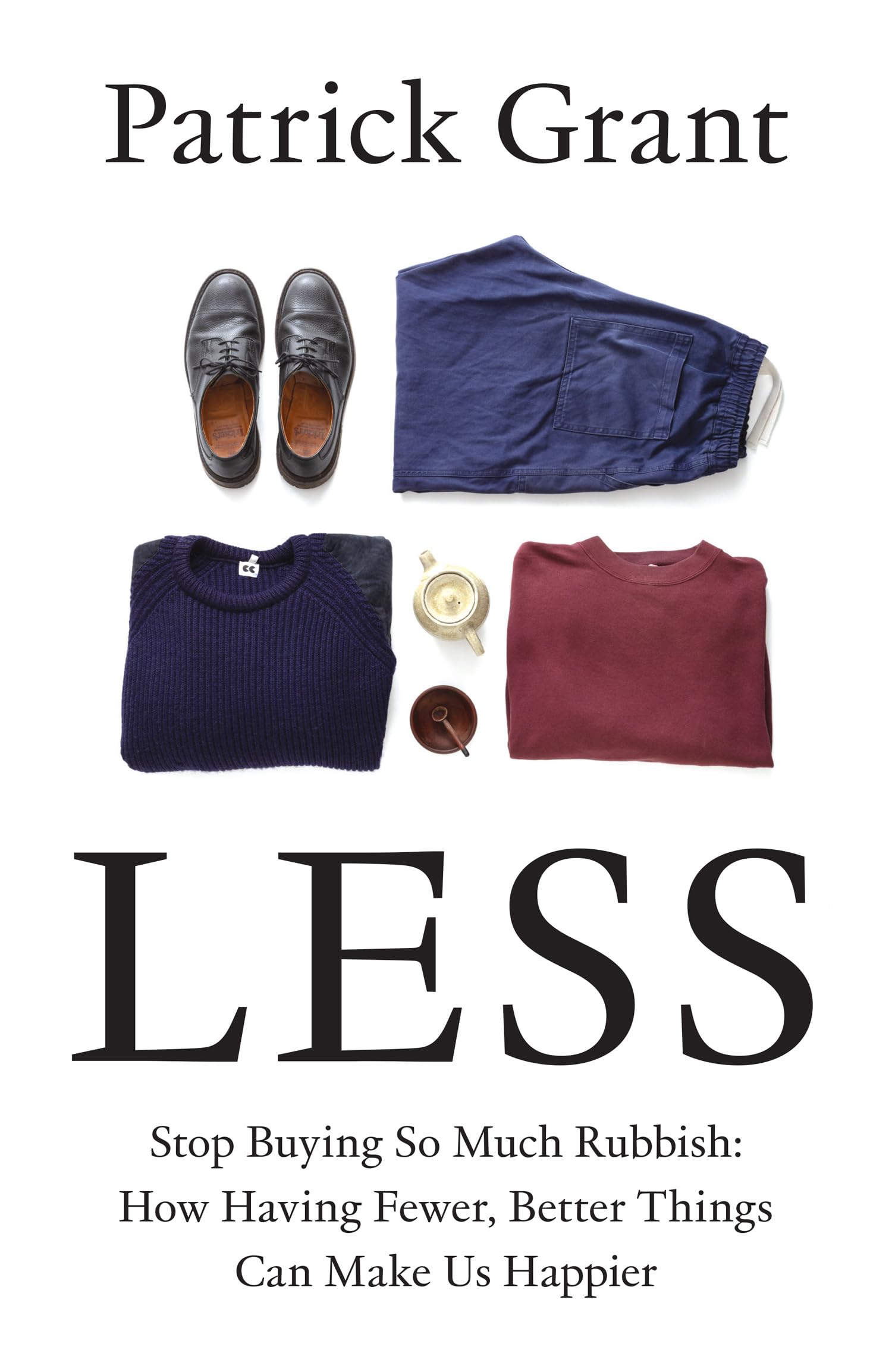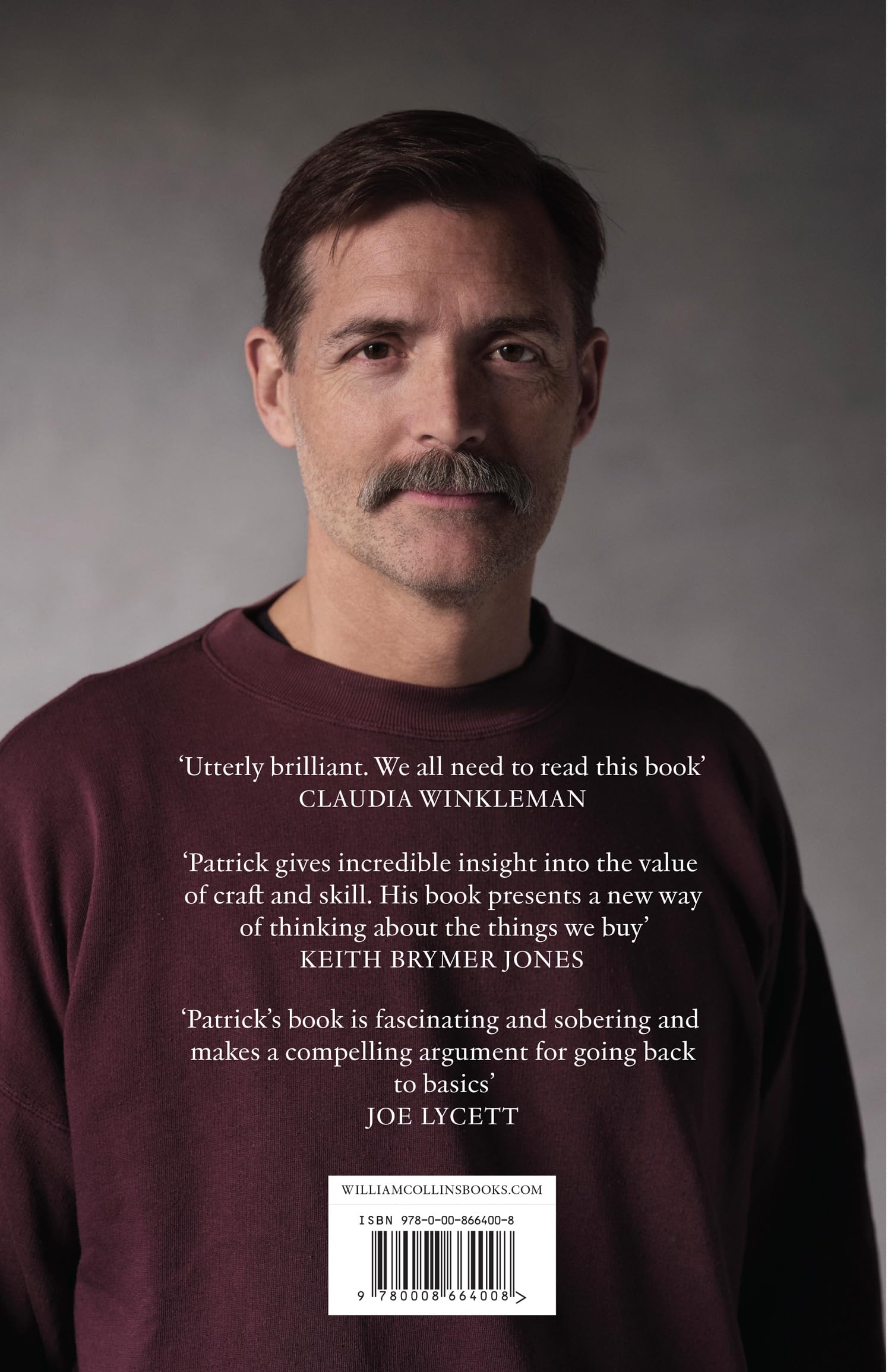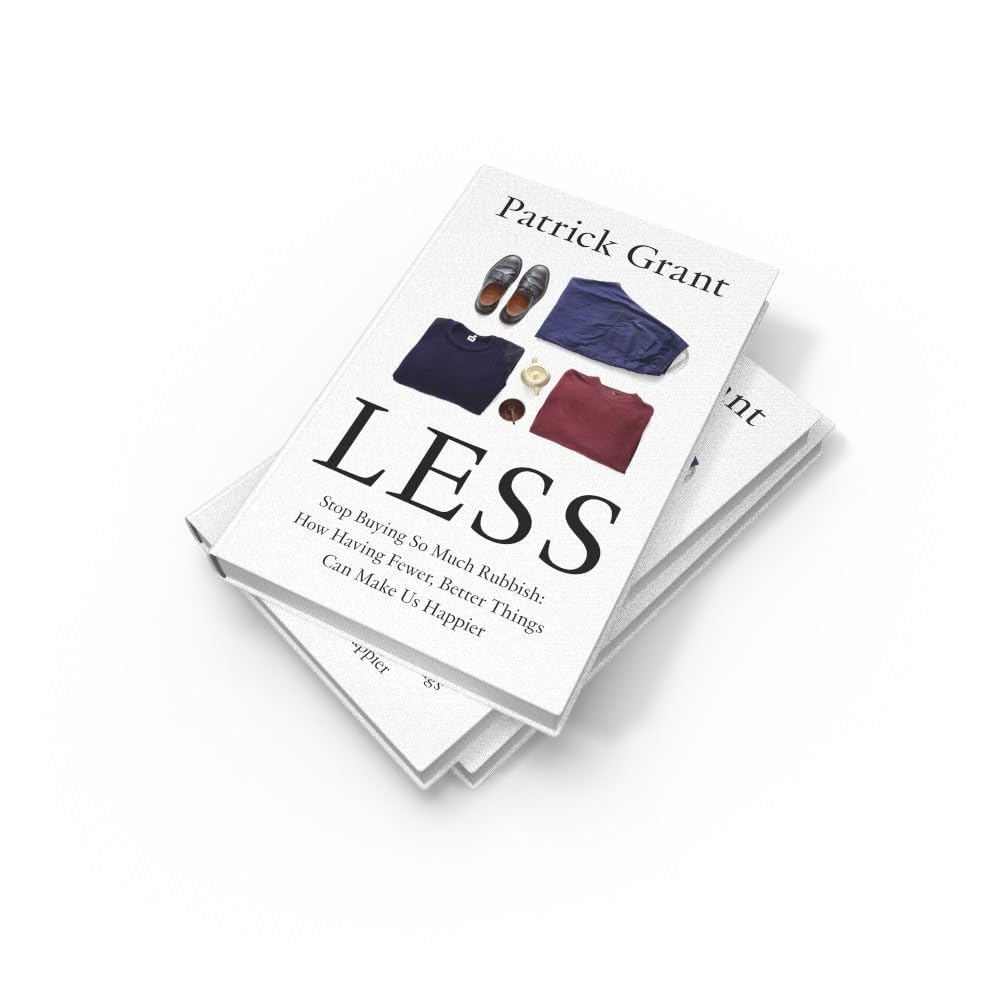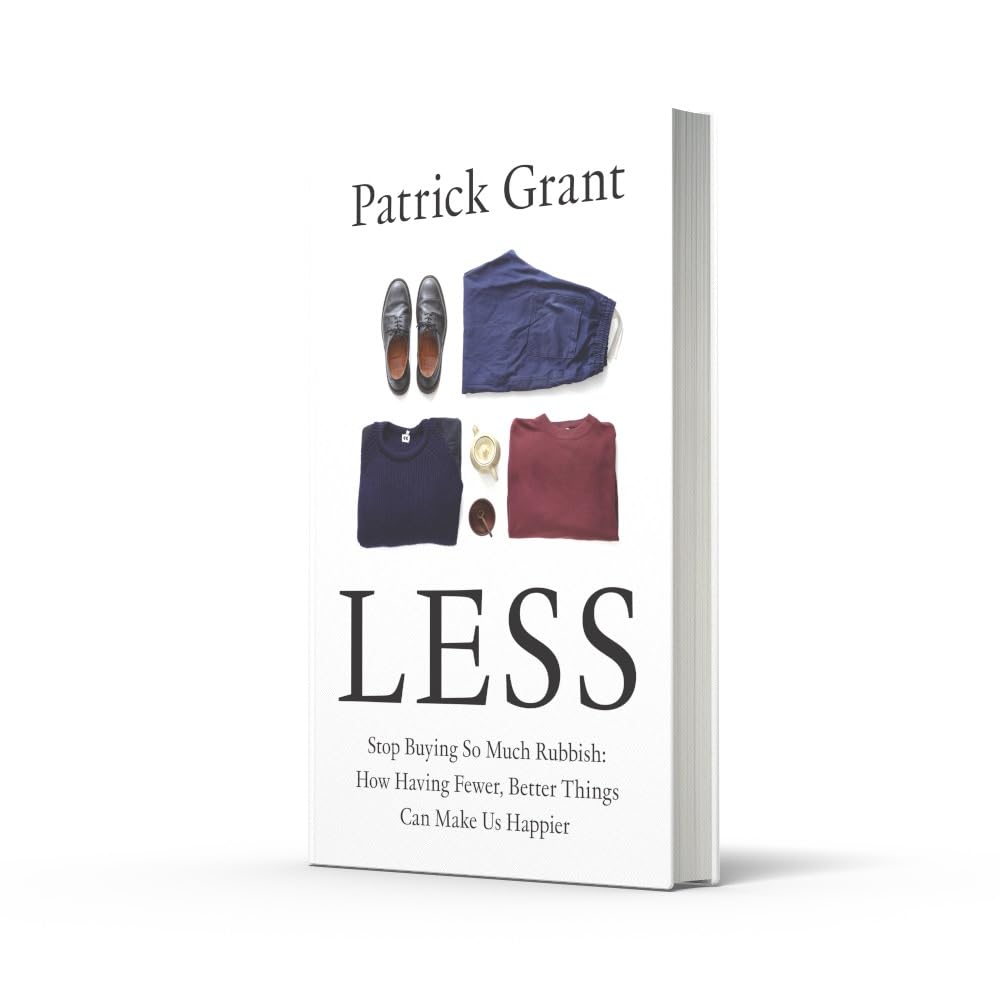




Less: Stop Buying So Much Rubbish: The Sunday Times Bestselling Book from The Fashion Expert Championing Quality Over Excessive Consumption
T**A
Good explanations for the those not in the know
I would say this is a great intro to many strands of thought about modern clothing and textiles, if you are not already in the know about such things. Maybe a viewer of the sewing bee, who has not thought much about the clothes or textiles they purchase or how they dispose of them. However as I had studied Textile Design to post grad level and taught on a degree course, a lot of this was necessarily familar to me. I was slightly irritated at times my some of the middle class assumptions, my husband on hearing these views, said the usual, "darling, your chips are showing". Yes, OK, that is probably true, but growing working class and struggling to get to university in my thirties, after less than good schooling oppotunities, has probably given me a different outlook on some areas of life. We certainly did not have romantized ideas growing up, about old and precious textiles. New was good, it was new and shiny, it meant no scent of poverty, sometimes literally. I still find the concept of vintage, hard to content with (my problem) as anything old was seen as tatty and shameful, something to hide. Hence, I can see the joy and desire in buying cheap things today in H and M and similar places for thousands of working class youngsters. Disposable of course, not valued, probably, good for the planet, of course not, and there lies the rub. If you don't have much money, it is a real joy to buy cheap clothing on a Saturday, or used to be, now it is online of course. Actually, I never did this, I made all my own clothes from scatch from a very early age, but most people I knew didn't they "went down the market". Yes, this is a brilliant book, it discusses with honesty and heart felt earnestness some of the key issues that are relevent to modern clothing and the textile industry. But there are some built in assumptions along the way, given the authors background, which perhaps need to be delved into more deeply.
A**N
Very consumable, good value with a durable message…
This book could well save you time and money by recalibrating thoughts on where we are heading in terms of retail - it’s effect on people and planet.I enjoyed it immensely and felt all the way through that my own retail choices are indeed backed by someone with an in-depth first hand knowledge of the business of clothing.This book builds confidence in those who already know and have researched available insight through and through. It is also for those who are discovering, including new, responsible clothing businesses and educational institutions teaching on design and production. At the same time, it is for consumers open to learning with intent to understand the nasty truths behind consumer goods.There are clear signals on how we might all step away from adding to the ‘swamp of stuff’ and how we can reuse, recycle, repurpose what we have already made.The book lends the question, is actionism (in the social context) a permanent solution?The messages linger after finishing the book so there is every chance it might just resonate with you too…a worthy read.
B**R
Genuine and heartfelt
Mr Grant writes with such genuine passion and total belief in his aim for a more sustainable and soulful existence especially where clothing is concerned. You can feel is commitment emanating through the pages of this book. A great companion book to the Orsola de Castro book 'Loved Clothes Last'. Highly recommended read - whether to dip into or cover to cover.
C**E
Makes you think.
There is a lot of history, but there are many mind blowing facts that makes you take stock and think. We can’t continue on this path and things need to change. Jobs are dwindling with so many things sourced from abroad now. It’s quite scary. It is true that many goods are tat, and don’t last anymore, ranging from socks ( so thin) to pans, kettles, clothes etc etc. The list goes on. The quality of new has gone in nearly every sector. It makes you wonder what the future will hold for our grandchildren. I have decided that the greatest gift I can give to them, is my time. …..to pass on the knowledge of sewing, knitting, pottery, crafting, growing, gardening, painting, , playing musical instruments and so many more life skills that my parents passed on to me. The skill of making gives you a sense of pride, helps with problem solving, makes you more grounded as a person and is good for the soul. That is the future. Thank you mum and dad.
S**S
Less.
Very good. Thought provoking.
Trustpilot
2 days ago
1 month ago